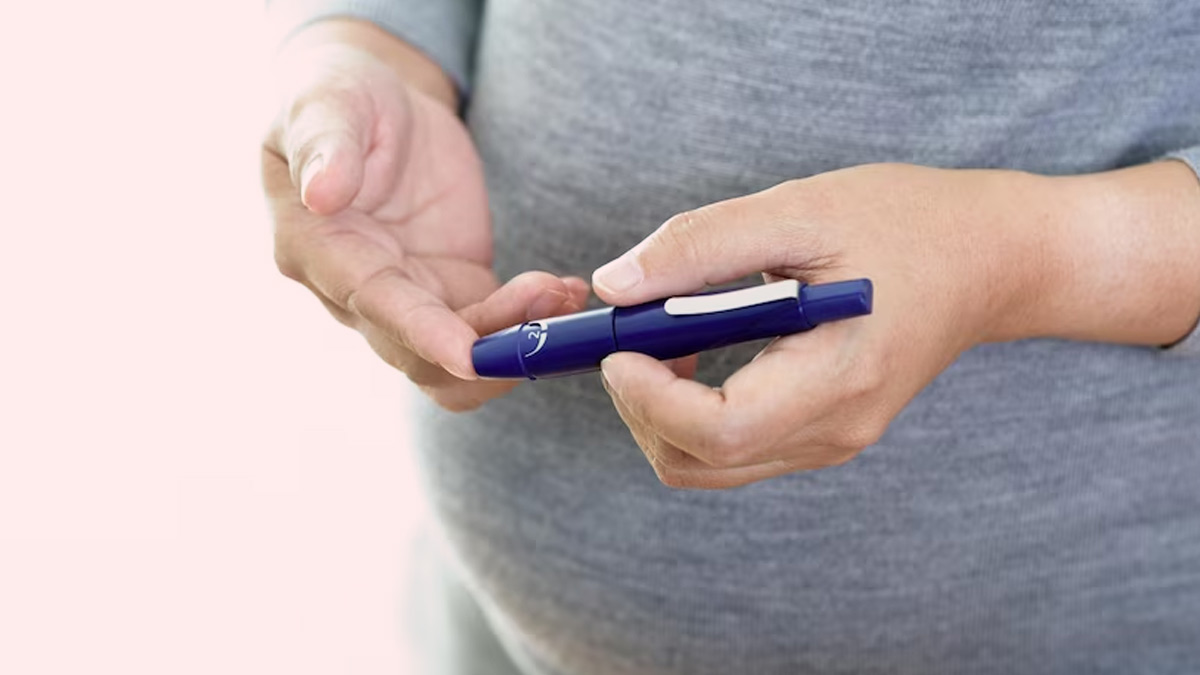
A woman goes through various challenges during and after her pregnancy. One such health condition that can occur during this phase is gestational diabetes.
Gestational Diabetes Mellitus (GDM) is a type of diabetes that develops during pregnancy and is associated with high blood sugar levels. This occurs as there is hormone production by the placenta, which resists the body from effectively using insulin. But did you know extreme weather conditions can significantly impact this health condition? We spoke to our expert Dr. Durga Damodaran, General medicine, MBBS, MRCGP, Dip in Diabetes, Apollo Cradle & Children's Hospital, Karapakkam Chennai, who explained the impact of weather in influencing gestational diabetes.
Impact Of Weather

Hot temperatures have been associated with an increased risk of GDM, as it can lead to dehydration, stress, increased cortisol levels and insulin resistance. It is also important to note that extremely cold temperatures can pose health risks for pregnant women, especially those with underlying medical conditions such as GDM. Cold weather can cause constriction of blood vessels and increase blood pressure, which can be especially dangerous for women with high blood pressure or pre-eclampsia.
Also Read: Do's And Don'ts While Working During Pregnancy
Complications That Can Occur
Pregnant women with GDM are at an increased risk of complications such as preterm delivery, macrosomia, and stillbirth. Cold weather conditions can exacerbate these risks by causing stress and discomfort. This can lead to a lack of physical activity and poor nutrition, which is unhealthy for both mother and baby.
Let's take a closer look at the possible complications due to GDM:
Pre-eclampsia
It is a serious health condition that can occur in pregnant women with GDM. The condition is associated with high blood pressure and can harm the liver and kidneys. Pre-eclampsia can be life-threatening for both the mother and baby, leading to premature delivery or even stillbirth.
Premature Delivery
Premature infants that are born prior to 37 weeks of pregnancy may have organs that are not fully developed and require specialised care in a Neonatal Intensive Care Unit (NICU). In addition, premature babies may be at an increased risk of health problems later in life.
Macrosomia
Macrosomia is a condition in which a baby is significantly larger than average. This can occur when a pregnant woman's blood sugar levels are uncontrolled, as the excess sugar can cause the baby to grow too fast. It can increase the risk of complications during delivery, such as shoulder dystocia (when the baby's shoulders get stuck during delivery) and the need for a caesarean section. Babies with macrosomia may also be more susceptible to hypoglycemia (low blood sugar) and jaundice.
Other potential complications of GDM include:
- Respiratory distress syndrome (a breathing disorder in premature babies).
- Hypoglycemia (low blood sugar) in the baby after birth.
- A higher possibility of type 2 diabetes later in life.
Precautions

It is, therefore, crucial for pregnant women with GDM to take precautions during extreme weather conditions, hot or cold. Women should be advised to stay hydrated and avoid prolonged exposure to extreme temperatures. Also, they should be urged to maintain a nutritious diet and exercise regularly, even in bad weather. Pregnant women with GDM may also need more frequent monitoring of blood sugar levels during extreme weather conditions to ensure that their glucose levels remain stable and within a healthy range.
Takeaway
Dr Damodaran concluded by saying, "The impact of weather on GDM is an emerging area of research. Weather conditions can significantly impact a woman's risk of developing GDM, despite the need for additional research to fully comprehend the relationship. As healthcare professionals, we must be vigilant and consider all potential risk factors when caring for pregnant patients. Identifying and addressing these risk factors can ensure the best possible outcomes for both mother and baby."







